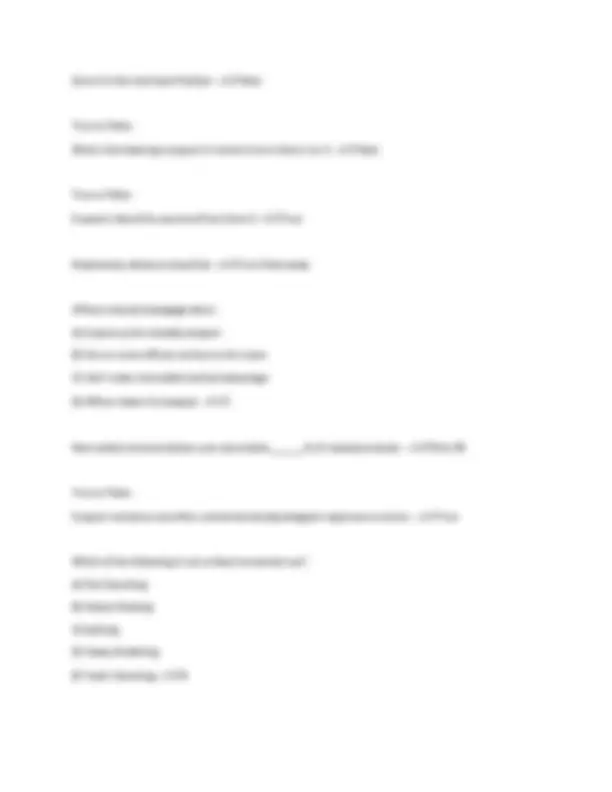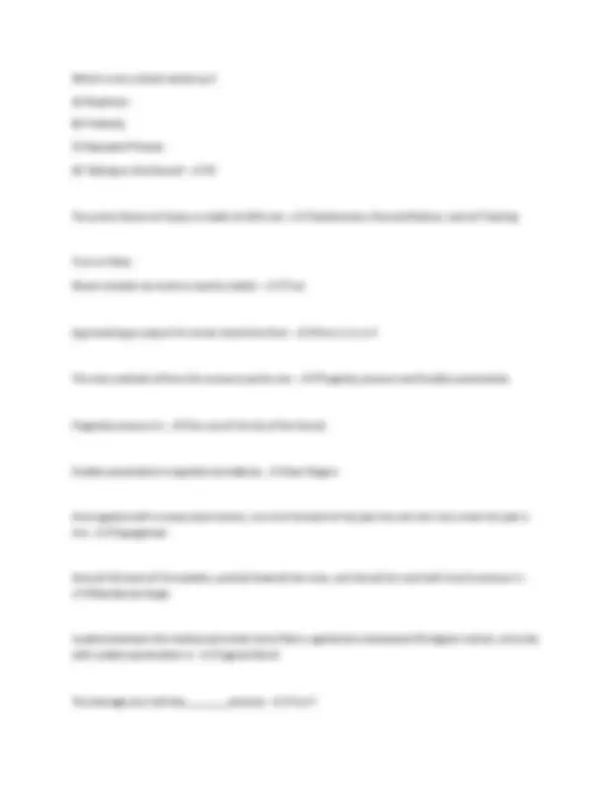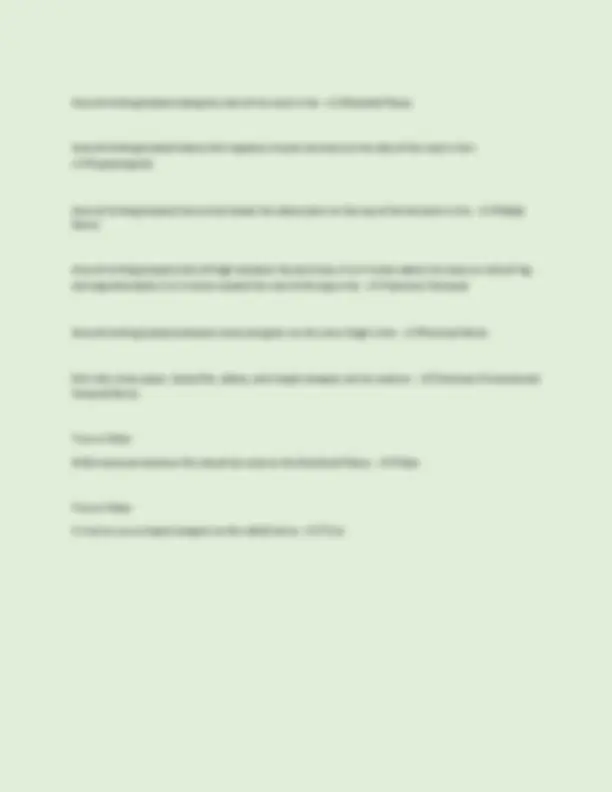





Study with the several resources on Docsity

Earn points by helping other students or get them with a premium plan


Prepare for your exams
Study with the several resources on Docsity

Earn points to download
Earn points by helping other students or get them with a premium plan
Community
Ask the community for help and clear up your study doubts
Discover the best universities in your country according to Docsity users
Free resources
Download our free guides on studying techniques, anxiety management strategies, and thesis advice from Docsity tutors
A comprehensive overview of suspect control arrest techniques (scat) with 50 questions and answers. It covers various force options, legal considerations, communication cues, and physical control techniques. Designed for law enforcement professionals and includes practical examples and scenarios.
Typology: Exams
1 / 5

This page cannot be seen from the preview
Don't miss anything!




What are the different force options? - ✔✔Deadly and Nondeadly Force used by officers AND offenders will be - ✔✔Deadly and Nondeadly Force not likely to cause death or serious physical injury is - ✔✔Nondeadly Force used to prevent escape from custody, effect of an arrest, or to defend him/herself or a third person is - ✔✔Nondeadly What case determined that the test of reasonableness under the 4th amendment is not capable of a precise definition or mechanical application. It require proper application requires careful attention to the facts of each particular case. - ✔✔Graham v. Connor Reasonableness is judged from - ✔✔the perspective of a reasonable officer on the scene All of the surrounding circumstances that caused the officer to make the decision on force options determines - ✔✔Reasonablesness Three objectives that make up objetiveable reasonableness are - ✔✔Ability, Opportunity, Intent Force used to defend him/herself or a third person from what is deadly physical force, effect an arrest or prevent an escape from someone who is attempting to escape by means of a deadly weapon, prevent the escape of a person from custody imposed as a result of conviction for a felony is - ✔✔Deadly True or False: The decision of force is a specific path for officers to follow in every situation. - ✔✔False
True of False: There is no hierarchy or specific order to employ any force option. - ✔✔True Subject behavior, totality of the circumstances, environmental conditions, reaction time, distance from the subject, multiple subjects/officers, size, gender, skill level of officer, age, injury, exhaustion, etc are all - ✔✔Force factors Basis for statistical reporting to FBI/SBI, useful for designing and revising training, explanation of decisions, management review are - ✔✔Purposes for documenting use of force The four key parts to documenting a use of force report are - ✔✔Assessment of initial call, observations made during call, actions taken, summary of encounter A key element of in the summary of encounter is - ✔✔photographs of injuries A officer should stay feet away at a minimum - ✔✔ 5 to 6 Directly in front of the subject (which should be avoided) is - ✔✔Zone 1 45 degrees from the front shoulders (Interview Position) is - ✔✔Zone 2 Directly to the side of each shoulder is - ✔✔Zone 3 45 degrees from the rear shoulders (Escort Position) is - ✔✔Zone 4 Directly behind subject is - ✔✔Zone 5 True or False:
Which is not a listed verbal cue? A) Raspiness B) Profanity C) Repeated Phrases D) Talking to him/herself - ✔✔D The prime factors of injury or death of LEOs are - ✔✔Carelessness, Overconfidence, Lack of Training True or False: Never consider an arrest a routine matter - ✔✔True Approaching a suspect for arrest should be from - ✔✔Zone 3, 4, or 5 The two methods of force for pressure points are - ✔✔Fingertip pressure and Sudden penetration Fingertip pressure is - ✔✔the use of the tip of the thumb Sudden penetration is applied normally by - ✔✔two fingers Area applied with a scoop style motion, one inch forward of the jaw line and one inch under the jaw is the - ✔✔Hypoglossal Area at the base of the earlobe, pushed towards the nose, and should be used with touch pressure is - ✔✔Mandibular Angle Located between the trachea and small nerve fibers, applied at a downward 45 degree motion, and only with sudden penetration is - ✔✔Jugular Notch The average stun will last seconds - ✔✔3 to 7
Area of striking located along the side of the neck is the - ✔✔Brachial Plexus Area of striking located where the trapexius muscle connects to the side of the neck is the - ✔✔Suprascapular Area of striking located two inches below the elbow joint on the top of the forearm is the - ✔✔Radial Nerve Area of striking located side of thigh between hip and knee, 4 to 6 inches above the knee on side of leg and approximately 1 to 2 inches toward the rear of the leg is the - ✔✔Common Peroneal Area of striking located between knee and groin on the inner thigh is the - ✔✔Femoral Nerve Shin kick, knee spear, closed fist, elbow, and impact weapon can be used on - ✔✔Common Peroneal and Femoral Nerve True or False: Knife hand and hammer fist should be used on the Brachical Plexus - ✔✔False True or False: It is ok to use a impact weapon on the radial nerve - ✔✔True